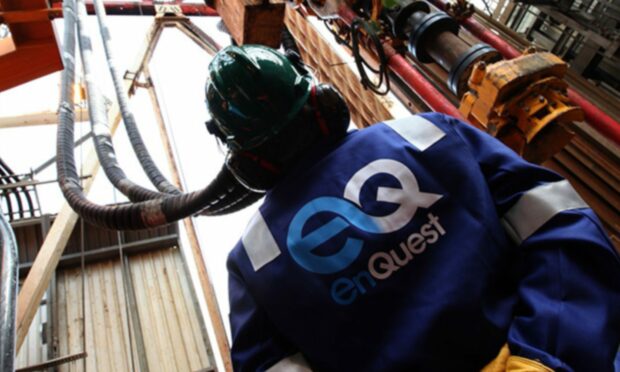UK North Sea operator EnQuest has blamed the controversial energy profits levy (EPL), or “windfall tax” for a 38% plunge in profits in the first half of 2023.
Shares in the London-listed company plummeted nearly 17%, wiping more than £50m off its market value, immediately following its interim results.
Units of the stock were worth 15.33p at Tuesday’s market close, down by more than 12% from Monday.
EnQuest counts the cost of EPL
First half pre-tax profits for Enquest came in just shy of £90 million, compared with £145.3m a year earlier.
Revenue and other operating income for the latest period totalled £583.3m, down from £751.1m a year ago. Sales were hit by lower commodity prices and a drop in the firm’s average net production to 45,480 barrels of oil equivalent (boe) per day, from 49,726boe previously.
EnQuest reported after-tax losses of £16.9m for the six months to June 2023, against profits of £162m a year earlier, “driven by the impact of the UK energy profits levy”.
The EPL was introduced and increased by the UK Government last year as a means of raising cash to support households struggling with spiralling energy bills.
But it has left oil and gas producers with a top line tax rate of 75%.
Some firms have cited EPL as the reason behind them shelving projects, selling stakes and slashing jobs in the UK North Sea.
The UK’s oil and gas sector faces significant challenges and loss of competitiveness due to uncertainty following the adverse changes to the fiscal regime.”
Amjad Bseisu, chief executive, EnQuest
Earlier this year the government introduced its “energy security investment mechanism” (Esim) to give the oil and gas sector “certainty to raise capital and invest in new and existing projects”
It means the EPL will remain in place until March 2028 unless oil and gas prices fall to historically normal levels for a sustained period. The total tax take from oil and gas firms would then return to 40%, which was the rate before the EPL was introduced.
EnQuest chief executive Amjad Bseisu said: “The UK’s oil and gas sector faces significant challenges and loss of competitiveness due to uncertainty following the adverse changes to the fiscal regime.
“While we appreciate the government’s intentions to improve the attractiveness of the sector through the energy security investment mechanism, we believe timely legislative reform is required to restore confidence in the UK oil and gas sector to protect jobs and deliver both energy security and decarbonisation.”
EnQuest’s boss said a strong first half operational performance, including the “efficient return to service” of the company-operated Kraken oilfields, 80 miles east of Shetland, heled to drive down net debt.
As of June 30, the firm’s net debt stood at £472m – down from £571.2m at the end of 2022.
Mr Bseisu said EnQuest had a significant UK North Sea work programme in the second half of the year, including further drilling on Magnus and at Golden Eagle and a continuation of well plug and abandonment activities on Heather and Thistle.
EPL’s ‘negative impacts’
OEUK fiscal and investor relations manager Francesca Bell said EnQuest’s results were “another worrying example of the negative impacts the [EPL] is having on UK energy production and with it, the jobs, economic growth, and the reliable supplies of energy it supports”.
She added: “We’re proud to pay our taxes and have always been clear that when the windfall conditions go, the windfall tax should go.”
The introduction of the Esim was “a step in the right direction” but more action is needed from government to restore confidence to the sector and ensure it can continue to play a key role in the UK economy, she said.




Conversation